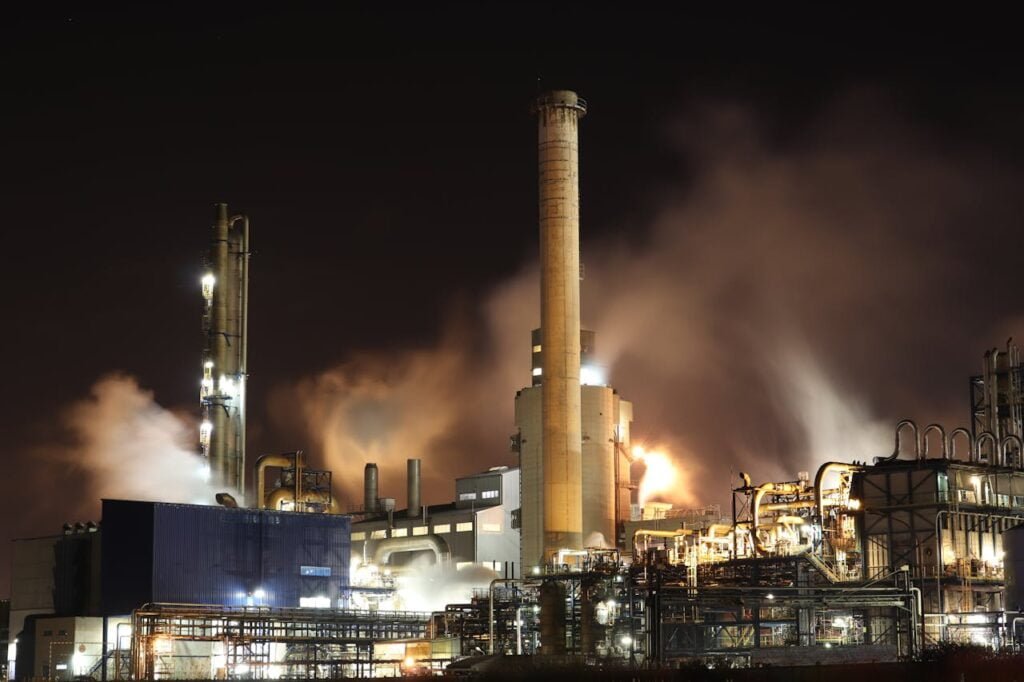What is the Nepal Petroleum Act 1983?
The Nepal Petroleum Act 1983 establishes the legal framework governing petroleum exploration, production, and distribution in Nepal.
It outlines the rights, obligations, and regulatory provisions applicable to entities involved in the petroleum sector within the country.
The Act aims to ensure efficient management, sustainable development, and fair utilization of Nepal’s petroleum resources while safeguarding national interests and promoting investment in the sector.
How does the act regulate petroleum exploration?
The Nepal Petroleum Act 1983 regulates petroleum exploration by defining the process for obtaining exploration licenses, conducting surveys, and drilling activities.
It sets forth the conditions under which exploration can occur, including environmental and safety standards.
The Act mandates that all exploration activities adhere strictly to approved plans and procedures, ensuring compliance with technical, operational, and legal requirements.
What are the licensing requirements for petroleum operations?
Petroleum operations in Nepal require licenses issued under the Nepal Petroleum Act 1983. Applicants must demonstrate technical capability, financial stability, and compliance with environmental standards.
The licensing process involves rigorous evaluation by regulatory authorities to ensure that operators can responsibly exploit petroleum resources while adhering to national laws and regulations.
What incentives are provided for petroleum investment?
The Nepal Petroleum Act 1983 offers incentives to encourage investment in petroleum exploration and production.
These incentives may include tax holidays, reduced customs duties on equipment, and other financial benefits aimed at attracting foreign direct investment (FDI).
Such incentives are designed to promote economic growth, technological advancement, and employment generation in the petroleum sector.
How does the act ensure environmental protection?
The Nepal Petroleum Act 1983 incorporates stringent provisions to ensure environmental protection during petroleum operations. It mandates environmental impact assessments (EIAs) prior to project commencement and requires operators to implement mitigation measures to minimize ecological harm.
The Act also establishes penalties for non-compliance with environmental regulations, underscoring its commitment to sustainable development and safeguarding Nepal’s natural resources for future generations.
What are the safety standards for petroleum activities?
Safety standards for petroleum activities in Nepal are defined by regulations under the Nepal Petroleum Act 1983. These standards encompass operational practices, equipment specifications, and emergency response protocols aimed at ensuring the health and safety of personnel, protecting the environment, and preventing accidents. Compliance with these standards is mandatory for all entities involved in petroleum exploration, production, and transportation within Nepal’s jurisdiction.
How are petroleum royalties determined?
Petroleum royalties in Nepal are determined based on production output and contractual agreements between the government and petroleum operators. The Nepal Petroleum Act 1983 outlines the calculation methods and payment schedules for royalties, which typically involve a percentage of gross production revenues or a specified monetary amount per unit of petroleum extracted.
The royalties contribute to government revenue while reflecting the value of natural resources extracted by private entities under licensed operations.
Private Investment in Infrastructure Act, 2006
What is the role of the Petroleum Regulatory Authority?
The Petroleum Regulatory Authority in Nepal, established under the Nepal Petroleum Act 1983, oversees and regulates the petroleum sector. Its responsibilities include issuing licenses, enforcing compliance with technical and environmental standards, monitoring operational activities, and resolving disputes.
The Authority plays a crucial role in promoting transparency, efficiency, and sustainable development within the petroleum industry while safeguarding national interests and facilitating foreign direct investment.
How are disputes in the petroleum sector resolved?
Disputes in the petroleum sector in Nepal are resolved through mechanisms outlined in the Nepal Petroleum Act 1983 and related regulations. These may include negotiation, mediation, or arbitration conducted by impartial bodies or specified authorities.
The Act ensures fair and timely resolution of disputes concerning contractual obligations, operational issues, or regulatory compliance, aiming to maintain investor confidence and uphold legal integrity within the sector.
What are the penalties for non-compliance with the act?
Non-compliance with the Nepal Petroleum Act 1983 may result in penalties ranging from fines to suspension or revocation of licenses, depending on the severity and recurrence of violations. Penalties are enforced by regulatory authorities empowered under the Act to ensure adherence to operational, environmental, and safety standards.
These measures underscore the Act’s commitment to enforcing legal obligations, promoting responsible petroleum operations, and protecting national interests and resources.
How does the act address petroleum imports?
The Nepal Petroleum Act 1983 governs petroleum imports by establishing regulations and procedures for importation, storage, distribution, and sale of petroleum products. It mandates that importers comply with quality standards, licensing requirements, and tariff regulations set by the government. The Act aims to ensure a stable supply of petroleum products while safeguarding national interests and promoting fair competition among importers.
What are the requirements for petroleum storage facilities?

Petroleum storage facilities in Nepal must adhere to stringent requirements outlined in the Nepal Petroleum Act 1983. These include specifications for construction, safety measures, capacity limits, and environmental safeguards to prevent risks such as leaks, spills, or fires. Operators must obtain permits and regularly undergo inspections to ensure compliance with regulatory standards aimed at protecting public safety and minimizing environmental impact.
How does the act promote private sector participation?
The Nepal Petroleum Act 1983 encourages private sector participation in the petroleum sector by facilitating transparent licensing processes, offering incentives such as tax breaks and investment guarantees, and promoting competition. It creates a regulatory framework that supports investment in exploration, production, distribution, and related infrastructure, thereby fostering economic growth, technological advancement, and employment opportunities within the industry.
What are the reporting requirements for petroleum companies?
Petroleum companies operating in Nepal are required to submit regular reports to regulatory authorities as per the Nepal Petroleum Act 1983. These reports typically include financial statements, production data, environmental impact assessments, and compliance updates. The Act ensures transparency and accountability in petroleum operations, enabling authorities to monitor industry activities, assess economic impact, and enforce regulatory compliance effectively.
How does the act regulate petroleum pricing?
The regulation of petroleum pricing in Nepal under the Nepal Petroleum Act 1983 involves setting guidelines and mechanisms to ensure fair pricing practices. The Act empowers regulatory authorities to monitor and control pricing to prevent monopolistic behavior, price manipulation, and unfair trade practices. It may include provisions for price ceilings, cost-based pricing formulas, and periodic reviews to reflect market conditions while balancing consumer protection and industry sustainability.
What are the standards for petroleum transportation?
Petroleum transportation standards in Nepal are established under the Nepal Petroleum Act 1983 to ensure safe, efficient, and environmentally sound transportation of petroleum products. These standards encompass vehicle specifications, handling procedures, packaging requirements, and transportation routes. Compliance with these standards is mandatory for all entities involved in transporting petroleum within Nepal’s jurisdiction, aiming to mitigate risks such as spills, leaks, and accidents while safeguarding public health and the environment.
How are petroleum contracts awarded?
Petroleum contracts in Nepal are awarded through a competitive bidding process overseen by regulatory authorities as stipulated under the Nepal Petroleum Act 1983. The process involves public announcements, pre-qualification of bidders, submission of proposals, evaluation based on technical and financial criteria, and awarding of contracts to the most qualified bidder. This transparent process ensures fairness, promotes competition, and maximizes economic benefits for the country while attracting foreign direct investment (FDI) into the petroleum sector.
What is the procedure for obtaining a petroleum license?
The procedure for obtaining a petroleum license in Nepal under the Nepal Petroleum Act 1983 involves submitting an application to the regulatory authority along with detailed exploration or production plans, financial capabilities, and environmental impact assessments. The application undergoes rigorous evaluation, including technical reviews and public consultations, before the issuance of a license. This procedure aims to ensure that license holders possess the requisite expertise and resources to conduct petroleum activities responsibly while complying with legal and regulatory requirements.
How does the act support energy security?
The Nepal Petroleum Act 1983 supports energy security by promoting sustainable development of Nepal’s petroleum resources, reducing dependency on imported fuels, and diversifying the energy mix. It encourages investment in domestic exploration and production, infrastructure development, and technological innovation within the petroleum sector. By ensuring reliable and adequate supply of petroleum products, the Act contributes to national energy independence, economic stability, and resilience against global energy market fluctuations.
How are consumer rights protected under the act?
Consumer rights under the Nepal Petroleum Act 1983 are protected through regulations that mandate fair pricing, quality standards, and reliable supply of petroleum products. The Act prohibits unfair trade practices, price gouging, and product adulteration while requiring transparent disclosure of product information and terms of sale. Regulatory authorities enforce these provisions through inspections, consumer education programs, and penalties for violations, ensuring that consumers receive safe, affordable, and reliable petroleum products that meet established standards of quality and service.
FAQs
What opportunities exist for foreign investment in Nepal’s petroleum sector?
The Act allows foreign investment in petroleum exploration, production, and distribution, subject to government agreements.
Who regulates the petroleum sector in Nepal?
The Department of Mines and Geology oversees petroleum exploration, while distribution is managed by Nepal Oil Corporation.
What is the process for obtaining petroleum exploration rights?
Investors must enter into Production Sharing Agreements with the government, following a bidding process.
Are there any incentives for petroleum sector investors?
Incentives may include tax holidays, duty exemptions on equipment, and guaranteed purchase agreements.

Comments are closed